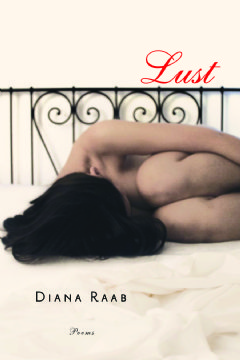French Lust vs. American Puritanism
This is an op-ed article from author Diana Raab
The media has been calling the French President, Francois Hollande’s extramarital affair scandalous. In fact a reporter at The Sop even used the sub-headline, “Does lust trump brains?” This is ridiculous and perhaps written by a prudish journalism student, who is inexperienced, un-read, or with little sophistication and understanding about the French culture. Historically, the way of life in France is synonymous with having lovers on the side, in both the government and private sector. It is done, sometimes respected but rarely spoken about, and if it is spoken about, it does not turn into a national disaster.
Things are different in the United States where the phenomenon tends to become headline news. For generations, French men have had mistresses, who were not necessarily cheating. In fact, often their wives knew about the mistress, and in some cases women follow suit and find themselves boyfriends. It is not to say that it is right or wrong, but rather it is simply the French way.
This poses the question as to whether Americans are more prudish and less lustful than the French. The idea that American children are permitted to watch violent films but forbidden from watching sex scenes on television, signals that Americans might hold a puritan or prudish attitude towards lust and romance.
For the longest time the French culture has been depicted as sensual and lustful. They tend to hold the view that sex and lust is a natural and beautiful aspect of life as a human being. For years, the classical French literature—such as that by Stendhal, Flaubert, Balzac, Hugo—portrayed emotions of love and lust in an enticing and carnal way. The Merriam-Webster dictionary defines lust as “intense or unbridled sexual desire, intense longing, craving.” In the 12th to 14th centuries, those in northern European countries, when using the word “lust,” implied pleasing or delighting, which has a much more positive slant. Something joyful, merry, and happy. Full of healthy vigor and zest for life.
In America, unfortunately, the word “lust” is often associated with forbidden love or pornography, portraying a negative aspect of human desire. But, in a broader sense, lust can pertain to passion and love, whether it’s for sex, friendship, money or life. This has positive connotations, and refers to the drive and passion for living.
According to a recent article in BBC News Magazine , “A Point of View: Sex and the French,” the French will easily admit that they are not a puritanical society, and accept the human need and desire for sex and food. In Alain de Botton’s, How To Think More About Sex, he says, “We need both art and sex to make us whole…and the specifics of what we find ‘beautiful’ and what we find ‘sexy’ are indications of what we most deeply crave in order to rebalance.”
We hear that French Presidents have affairs or mistresses, and many French people have lovers outside their main committed relationship. The BBC article shares that some cultures, such as American, like to be thought of as puritanical. However, they are less morally alert because they “have the judgments pre-packaged and their hypocrisies too.”
There is no universal right and wrong. In France, each case is assessed separately taking all the variables and conditions into consideration. “Morality may be permanent, but sexual ethics among adults are situational,” the article continues. If there were to be rules then there are always exceptions. In learning how to be lustful, it is not about learning how to have multiple partners or more intense and frequent sex, but about enjoying the minute sensations and joys of sharing a sensual language with another individual. If we do this often enough, the ideas of intimacy and lust become more familiar, less foreign and minimizes repression often depicted by Americans.
The idea of two individuals lusting after one another creates a union that shifts them from lonely strangers emotionally bonded, sharing pleasure rooted in stimulation of a biological drive. In his book, de Botton says part of the lustful feeling is webbed in the idea that two individuals seek approval from another, thus validating their sexuality. In the case of an older man lusting for a younger woman, it is usually because he is validating not only his virility, but his youth. Men and women who lust younger individuals are often experiencing a fear of their own mortality.
In comparing the French yearning for sensual lust with their appetite for a gourmet meal, we can say that both eating and lust indulge hunger. The French, however, do not gorge. It’s a polite ceremony with everyone being seated at the same time, being transported or transformed through the experience of eating. Like one who is transformed through an intimate encounter.
Lust, in its ultimate form, is a beautiful and positive experience to be nurtured and appreciated. It is one of the simple, yet at times quite profound, pleasures of life, that we can all relate to and yearn for, and if Americans don’t think that way, then they should live the life that pleases them and not judge what the French have been doing for years.
BIO NOTE:
Diana Raab is an award-winning author of 8 books, her latest release is Lust: Poems (WordTech Communications, February 2014).
( Press Release Image: https://photos.webwire.com/prmedia/47641/185101/185101-1.jpg )
WebWireID185101
- Contact Information
- Marian Brown
- President
- Marian Brown Publicity
- Contact via E-mail
This news content may be integrated into any legitimate news gathering and publishing effort. Linking is permitted.
News Release Distribution and Press Release Distribution Services Provided by WebWire.
